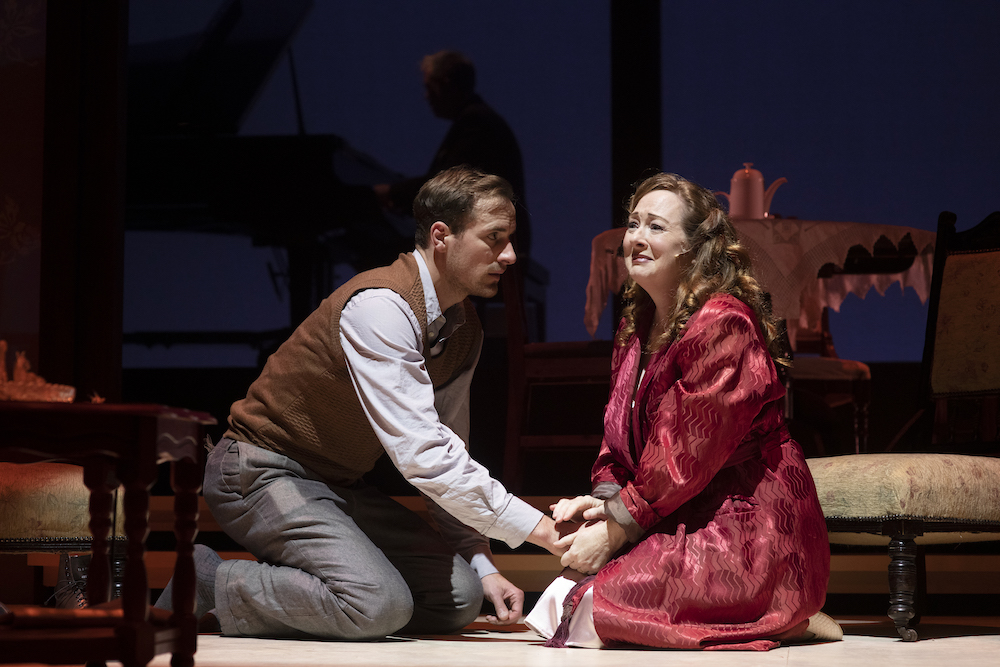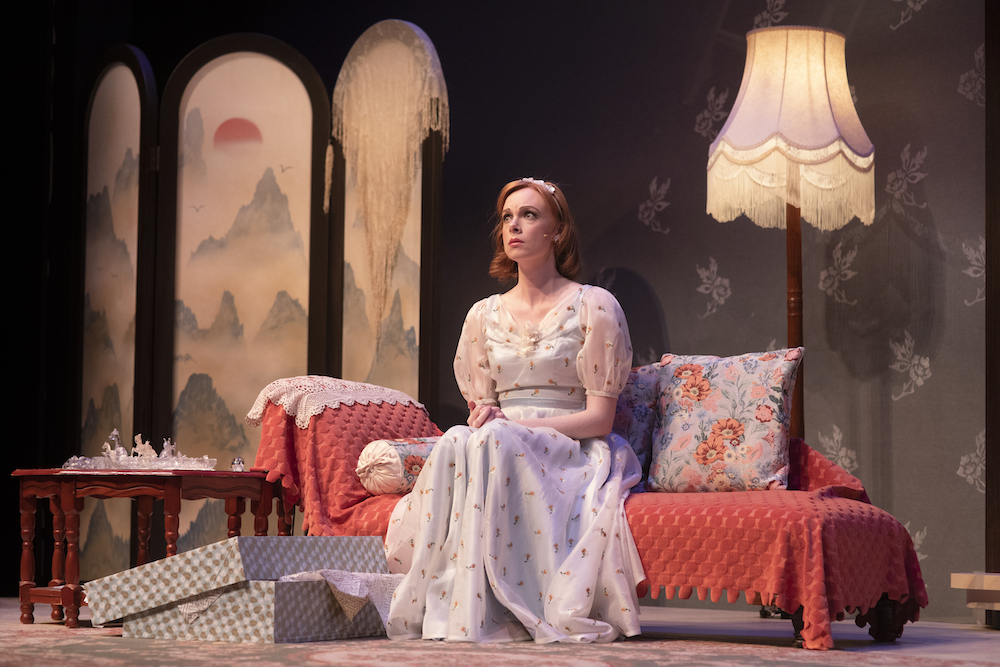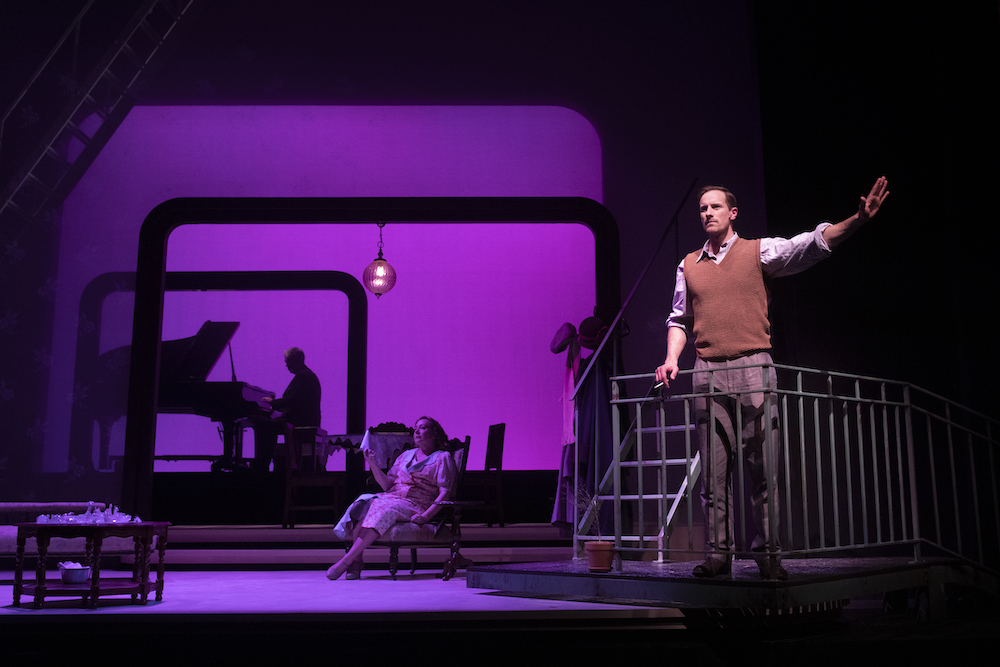The Glass Menagerie is a 20th Century classic, and Black Swan’s revival more than does it justice, writes David Zampatti.
Cinematic staging raises strong Glass
5 August 2022
- Reading time • 7 minutesTheatre
More like this
- Just what the doctor ordered
- Lifting the weight of the world
- Gentle touch guides lunar landing
The Glass Menagerie, Black Swan State Theatre Company ·
His Majesty’s Theatre, 5 August 2022 ·
Black Swan State Theatre Company’s revival of The Glass Menagerie amplifies the strengths of the play that heralded the arrival of Tennessee Williams as a major force on the American stage and introduced the genre of theatre he called the “memory play”.
It delivers plenty of its own qualities as well.
Its director, Clare Watson, returns to Black Swan in what is shaping up as a striking valedictory season as she hands the company’s reins over to Kate Champion. She has overlain the memories Williams has fashioned in this, his most autobiographical play, with others from the American interbellum.
It was a time of momentous change; the rise of the ambitious office man, who survived World War I and drove the machine of the American corporation that was to dominate the next century; the fever of the Roaring Twenties and the grim years of the Depression.

It was the era of the American Dream, but it was no time, or place, for the Wingfield family; the mother, Amanda (Mandy McElhinney), her daughter Laura (Acacia Daken) and son Tom (Joel Jackson).
Amanda and her family live in barely genteel poverty in St Louis, Missouri, abandoned by their husband and father, uprooted from the Mississippi Delta plantation life where she, in her telling anyway, lived a life of servants, gowns and a retinue of eligible young men
Tom is lonely. Trapped in a menial job in the warehouse of a shoe factory, he seeks escape nightly, ostensibly at the movies, and longs for a great adventure.
And Laura is trapped, too. A childhood blighted by pleurisy has left her physically and mentally scarred, terrified of the world beyond her sitting room and her collection of tiny glass animals, her menagerie.

Amanda’s fears for her daughter – despite her airs and graces, she is at heart a brutally practical woman – lead her to pin her hopes on the unlikely advent of a “gentleman caller” like the men of her own youth, who will provide romance and, much more importantly, financial security for her daughter.
Lo and behold, miraculously, one emerges: Jim O’Connor (Jake Fryer-Hornsby), a school friend and now workmate of Tom’s, and his arrival is the catalyst for the play’s disaster.
Not long before the setting of the play, the silent movie had given way to the “talkies” – a metaphor for the era that Watson and her designers use to anchor the production in its time and place.
The cinematic quality of the production rests on the elements Watson and her set and costume designer Fiona Bruce create for the stage at His Majesty’s. Rectangular shapes, like the outline of screens, frame the Wingfield’s shabby living and dining rooms, subtitles and evocative images (video designer Michael Carmody) seem to float around them.
Behind them, sometimes caught in light, sometimes in silhouette (by lighting designer Lucy Birkinshaw), the jazz composer Tom O’Halloran plays throughout, in sync with the action and dialogue, like the pianist in a silent movie.

The combined effect of shapes, light and sound is a singular platform for the performances, and The Glass Menagerie, like all Tennessee Williams, is an actor’s play.
The four performers, precisely accented in the Old South and the Midwest by vocal coach Julia Moody, each give their characters real life and vivacity.
McElhinney’s Amanda is coquettish and unstable, caught in the turmoil of her children. It would be easy to despise her, but McElhinney makes her desperation and folly somehow sympathetic.
There are traps in the characterisation of Laura, but Daken avoids them with a sweetness and calm that makes her sad fate all the more desperate when it overwhelms her.
Fryer-Hornsby’s Jim is perfectly pitched; you get his potential, and his inability to grasp it, especially in his monologue – sermon really – on success and how to achieve it, so finely tuned you expect him to burst into song at its climax.
Jackson’s Tom anchors the play and instructs us as to what it is and how it will proceed, and he has the poise and skill to go from narrator to character seamlessly (and be Tennessee Williams in disguise).
In its look, sound, and performances, this Glass Menagerie is a worthy addition to the long and distinguished line of productions of a 20th Century classic.
The Glass Menagerie continues at His Majesty’s Theatre until August 21.
Pictured top: Acacia Daken and Jake Fryer-Hornsby in ‘The Glass Menagerie’. Photo: Daniel J Grant
Like what you're reading? Support Seesaw.






